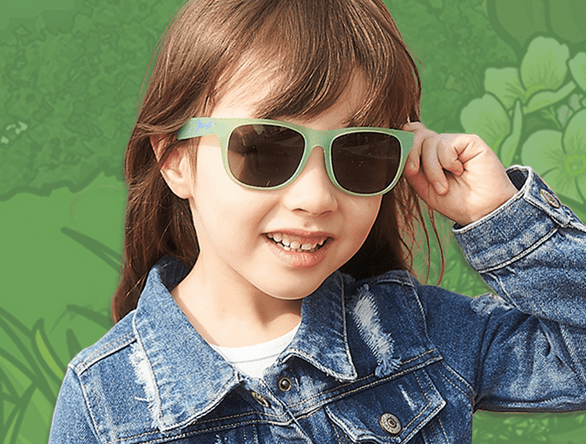How to protect your baby's hearing during their first outing

What is noise-induced hearing loss?
Noise-induced hearing loss, or NIH, is a type of hearing damage caused by prolonged exposure to loud noises. This can happen to people of all ages, including babies and children. It occurs when the tiny hair cells inside the ear, responsible for detecting sound, are damaged by excessive noise levels. This can lead to permanent hearing loss or tinnitus. That's why it's crucial to prioritize kids hearing protection and invest in ear defenders or other baby noise protection products to prevent noise-induced hearing loss. Whether it's attending a baby concert, sporting events, or fireworks, hearing safety should always be a top priority for parents and caregivers.How can I prevent my baby from getting noise-induced hearing loss?
The best way to prevent your baby from getting noise-induced hearing loss is to

invest in baby hearing protection products such as earmuffs or noise-blocking headphones. These products can help reduce the intensity of sound that reaches your baby's delicate ears, protecting them from potential harm.
When shopping for baby hearing protection, look for products that are specifically designed for children and have been tested to meet safety standards. You can also consult with your pediatrician for recommendations on which products to use.
In addition to using hearing protection, try to limit your baby's exposure to loud noises as much as possible. Avoid taking your baby to concerts, sporting events, or other loud environments. If you do need to bring your baby to a noisy event, make sure to use noise-cancelling headphones or earmuffs to protect their ears.
Overall, protecting your baby's hearing is an important part of ensuring their overall health and well-being. By investing in baby hearing protection products and taking steps to reduce their exposure to loud noises, you can help prevent noise-induced hearing loss and keep your little one healthy and happy.
What are some ways to protect my baby's hearing during their first outing?
Taking your baby out for their first outing can be an exciting experience. However, it is important to be mindful of their hearing as exposure to loud noises can lead to noise-induced hearing loss. Here are some ways to protect your baby's hearing during their first outing:
1. Prevent Exposure: It is important to limit your baby's exposure to loud noises during their first outing. Avoid taking them to places where there are loud noises such as construction sites, music concerts, and sporting events.
2. Block Harmful Noise: If you plan to attend a concert or a music event, consider investing in baby products like concert earmuffs specifically designed to protect your baby's hearing, like BANZ earmuffs for baby and kids. These earmuffs can block out loud noises and are comfortable for your baby to wear.
3. Keep the On: Make sure to keep the earmuffs or any other hearing protection products securely on your baby's head throughout the outing to ensure that their ears are protected from loud noises.
4. Monitor noise: Keep an eye on the noise level during the outing and remove your baby from the environment if the noise gets too loud.
5. Use Technology: You can also use noise monitoring apps on your phone to monitor the noise levels around you. These apps can help you determine whether the noise level is safe for your baby or not.
Remember, noise-induced hearing loss is preventable. By taking necessary precautions and investing in kids products like concert earmuffs, you can protect your baby's hearing during their first outing and promote their overall health and safety.
What are some other tips for preventing noise-induced hearing loss?
Apart from using hearing protection for your baby during their first outing, there are several other measures you can take to prevent noise-induced hearing loss.
Here are some tips:
1. Sit farther back from speakers: When attending concerts or events with loud music, sit as far away from the speakers as possible. The further away you are, the lower the decibel levels will be, reducing the risk of hearing damage.
2. Choose outdoor venues: If possible, choose outdoor venues for concerts or events. The open space allows the sound to disperse, reducing the intensity of the noise.
3. Limit time at loud events: It's important to limit the amount of time your baby spends at loud events. Try to keep the duration of exposure to high levels of noise to a minimum.
4. Take breaks: Taking breaks from the noise can help your baby's ears recover. During a concert or event, take your baby outside for a few minutes to give their ears a break.
5. Make it a family affair: Family time is a great way to enjoy outdoor activities and events while also protecting your baby's hearing. Encourage the whole family to get involved in outdoor activities such as hiking, camping, and picnics.
Remember, protecting your baby's hearing should be a priority at all times, not just during their first outing. Incorporate these tips into your family's routine to prevent noise-induced hearing loss and keep your baby's ears safe and healthy.


